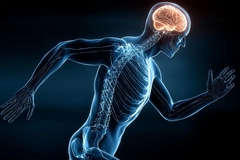Pharma Explores Innovative Ways to Treat Obesity in Women, says GBI Research

04 Mar 2015 --- With obesity forecast to affect 50% of adult women by 2050, pharmaceutical companies are currently exploring a number of different approaches to treating the condition, which is known to increase the risk of many serious diseases, says business intelligence provider GBI Research.
According to the company, the primary types of pharmaceutical products being investigated to tackle obesity include anti-diabetics, anti-depressants, ephedrine and caffeine, cannabinoid-receptor agonists and a variety of early-stage agents.
GBI Research says that there is an urgent need for improved treatments, as the current available therapies are associated with a range of issues, meaning efficacy and safety remain fairly elusive.
Obesity in women is associated with increased incidence of Polycystic Ovary Syndrome, chronic heart conditions and several major cancers, including postmenopausal breast cancer, while women with a higher degree of abdominal obesity are especially susceptible to type 2 diabetes.
For many obese patients, lifestyle changes are not sufficient to obtain required weight loss and surgical or pharmacological interventions are needed. As such, the holy grail of a safe and effective weight-loss drug continues to drive innovation in the treatment pipeline, according to GBI Research.
Novo Nordisk’s injectable drug Saxenda (liraglutide), originally used to treat diabetes, was recently approved by the US Food and Drug Administration as an obesity treatment following positive results in Phase III clinical trials. However, the drug comes with a boxed warning and can cause a range of possible side effects, a common problem in the development of obesity therapeutics.
Cannabinoid-receptor agonists are known to increase appetite but may also lead to depression, while several anti-depressants can cause anorexia as one of their major adverse effects. Ephedrine and caffeine, which are second-line options that increase energy expenditure, are associated with heart problems, such as tachycardia, hypertension and palpitations.
The company notes that there are a number of agents in early phases of investigation that may yet prove more efficacious as obesity treatments, including Grehlin antagonists, Alpha-melanocyte-stimulating hormone analogs, Beta3-adrenergicagonists, and agents such as tagatose that impede dietary carbohydrate absorption.











